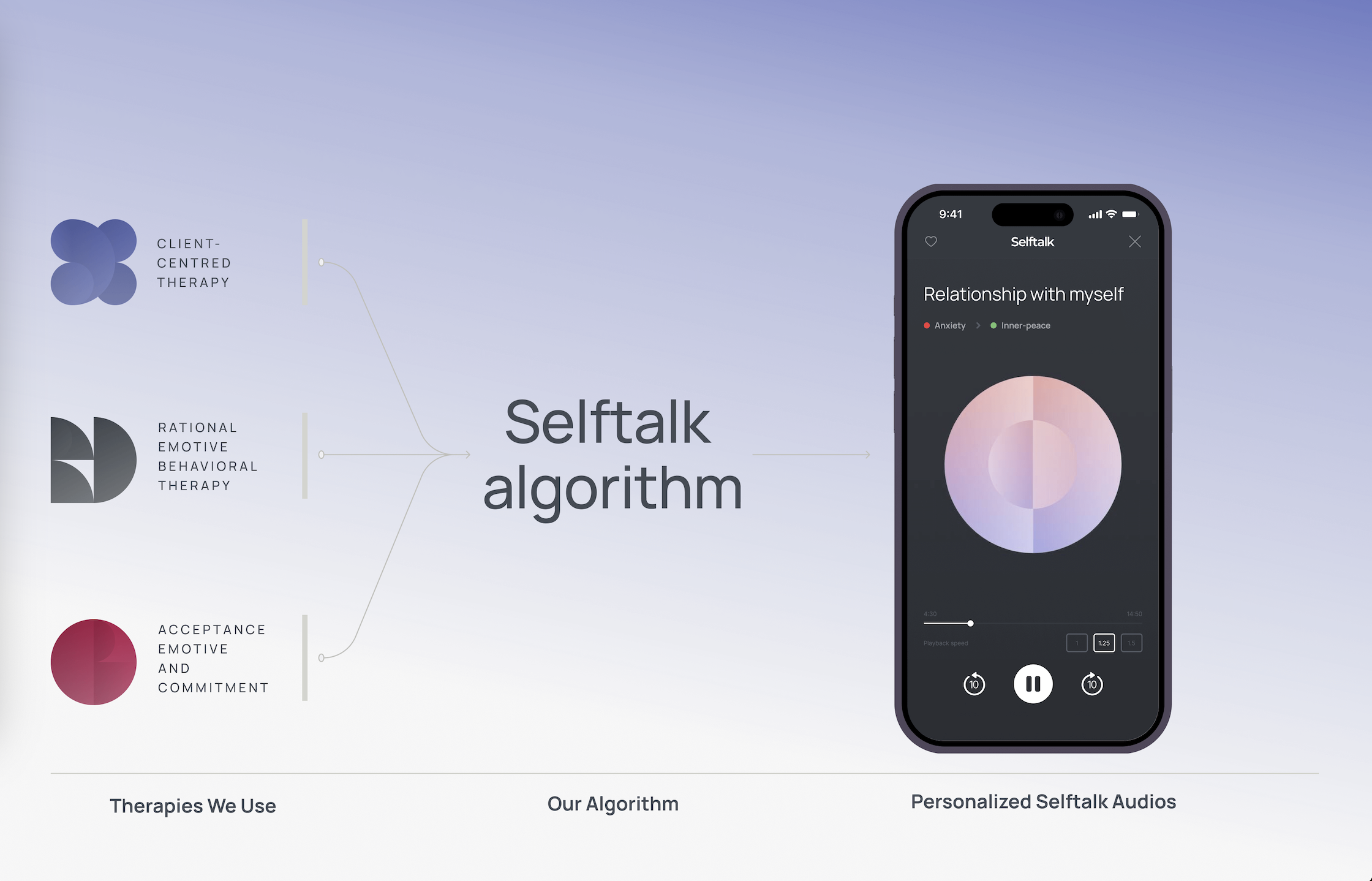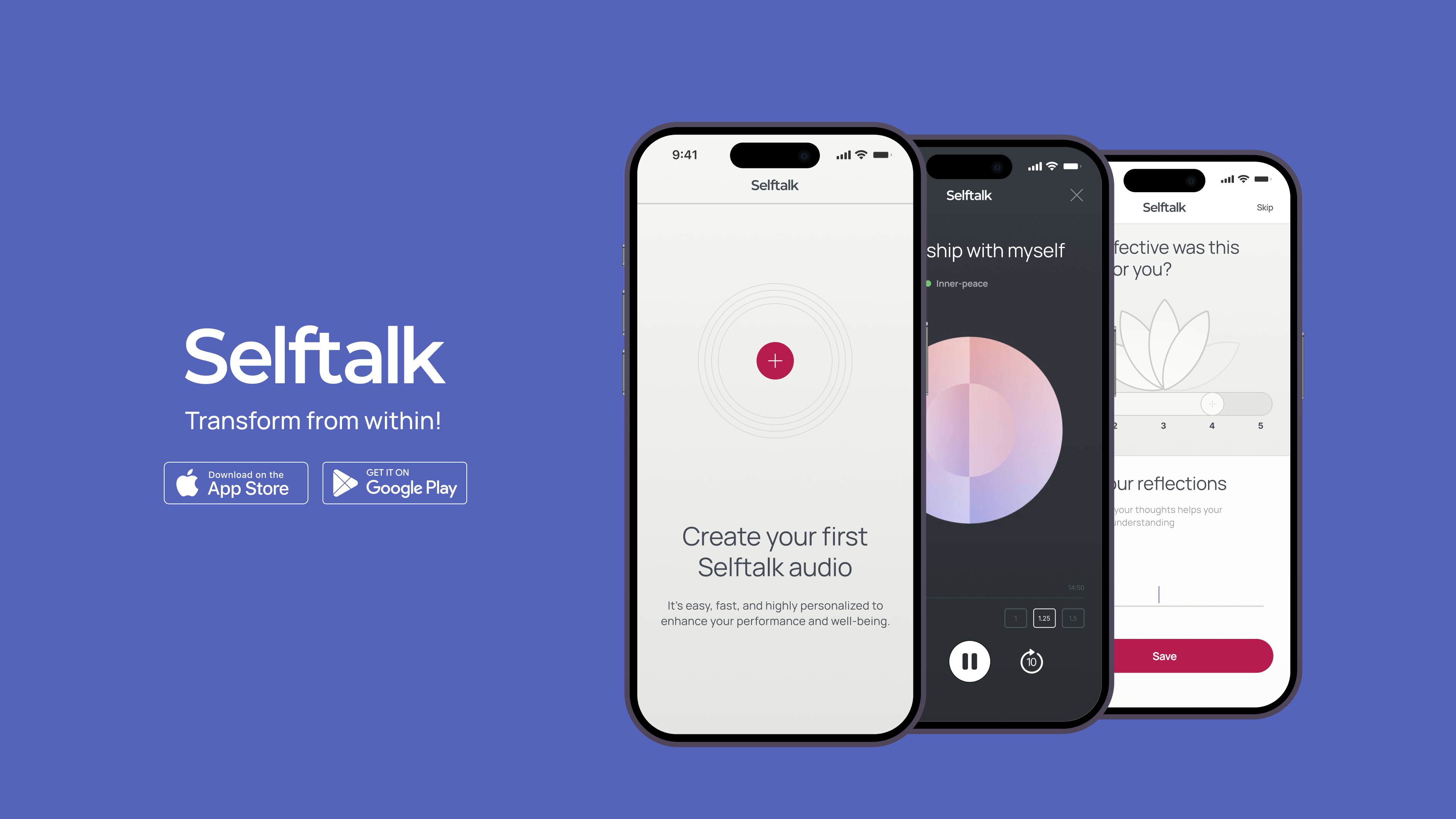
Starting a mental health app called Selftalk was a bit of a crazy decision.
The idea to name our app "Selftalk" came to me in the shower (I know, very clichéic).
I found the word "self-talk" simple and close to what I wanted the app to achieve - to teach me how to talk to myself, as a therapist would.
I had some doubts about the name because it’s very close to instantly being perceived as shallow self-affirmations = not serious.
But I choose to go with it anyway and here is why:
Self-talk in sports performance psychology
The first time I did a deep dive into the self-talk phenomenon I was surprised to see how well-researched the topic is, specifically in sports performance psychology.
Top athletes like Serena Williams, Michael Jordan and many others have self-talk coaches to help them develop self-talk scripts that contribute to optimal performance. These scripts can be instructional, motivational or neutral and their scope is to control cortisol levels during the games or training.
Micheal Jordan: "I never looked at the consequences of missing a big shot... when you think like that, it’s a game-changer.”
After reading around 30 research papers, my question was – why don’t we all use the same strategy in our daily lives?
The answer: because we are not familiar with how the mind works.
The science of the mind - a frontier science
The mind is a frontier science that we are only beginning to explore.
Scientists laugh that the mind is much like a London underground map - not geographically accurate but it does the job of presenting to us a simplified version of the world around us that is more practical for daily navigation than a detailed but overwhelming flood of information.
As a result of this abstractness of the mind, we pay more attention to the health of the body. Because we don't understand the mind, we don’t physically see it as we do the body and we don’t discuss it much.
The body-first approach is mainstream
To fix or improve the body, we go to the gym, get massages, have check-ups, and undergo surgeries.
But just as the body gets bruises, fractures, infections, and so on, the mind does too.
The mind can experience pain (ex: confusion, stress, anxiety), it can have dysfunctions (ex: dysfunctional thinking patterns), or it can even be broken (mental disorders).
Unconsciously, we deal with the pain of the mind by distracting ourselves from it.
The COVID-19 pandemic forced us to stay with ourselves for an unusually long period of time. It cut out most of the “painkillers“ we use to avoid feeling the pain of the mind: like social media, going out, drinking, casual relationships, etc.
As we progress on Maslow's Hierarchy of Needs, the pain of the mind can't be ignored. As our basic needs are met, we begin to seek love, fulfillment, and self-actualization, and these needs bring us in contact with our inner world - the mind and the heart.
It’s time for a mind-first approach
This is why, I consider it the right time to build solutions that democratize access to cognitive behavioral therapy.
I truly believe therapy, much like general healthcare, should be accessible, affordable, and available for everyone, regardless of location, income, or education.
1. Accessible therapy anytime, anywhere
One of the deeper motivations for starting Selftalk was that I wanted my younger self to have access to cognitive behavioral therapy. As a teenager and student, I craved self-understanding and emotional ease. I watched hundreds of TED talks and YouTube videos to understand what I was going through emotionally, and only some really offered solutions. Most of them just ingrained me with limited (sometimes unhealthy) thinking patterns about success, life, or human nature.
2. Affordable therapy for all
This is a controversial discussion, but the people who need therapy the most can't afford it or find it so stigmatized that it's never considered a solution. Current therapy services aren't affordable for those who need them the most. An hour-long traditional therapy session can range from $65 to $250 according to therapist directory GoodTherapy.org. As a result, over half (56%) of adults needing therapy receive no support.
3. Zero-stigma experience
There are many stereotypes about therapy: it's for the privileged, real men don't need it, it's only for "crazy" people, or for the weak, and so on. Combatting these stereotypes requires education, public awareness and alternative solutions to start with!
Therapy is not a magic pill
To sum it up, I don’t believe that therapy is a magic pill for all our problems, but everyone deserves the opportunity to explore its potential benefits.
At selftalk.space, we offer an alternative solution that’s a few clicks away, affordable and it's zero-stigma.
We DO NOT replace mental health professionals.
We aim to make their “know-how” instantly accessible to groups that can’t access, can't afford, or feel stigmatized to benefit from their services.
_________________
P.S. The app is currently available only for businesses, but if you are curious to try it, sign up here! We are happy to give you access in advance to test our freemium model!


